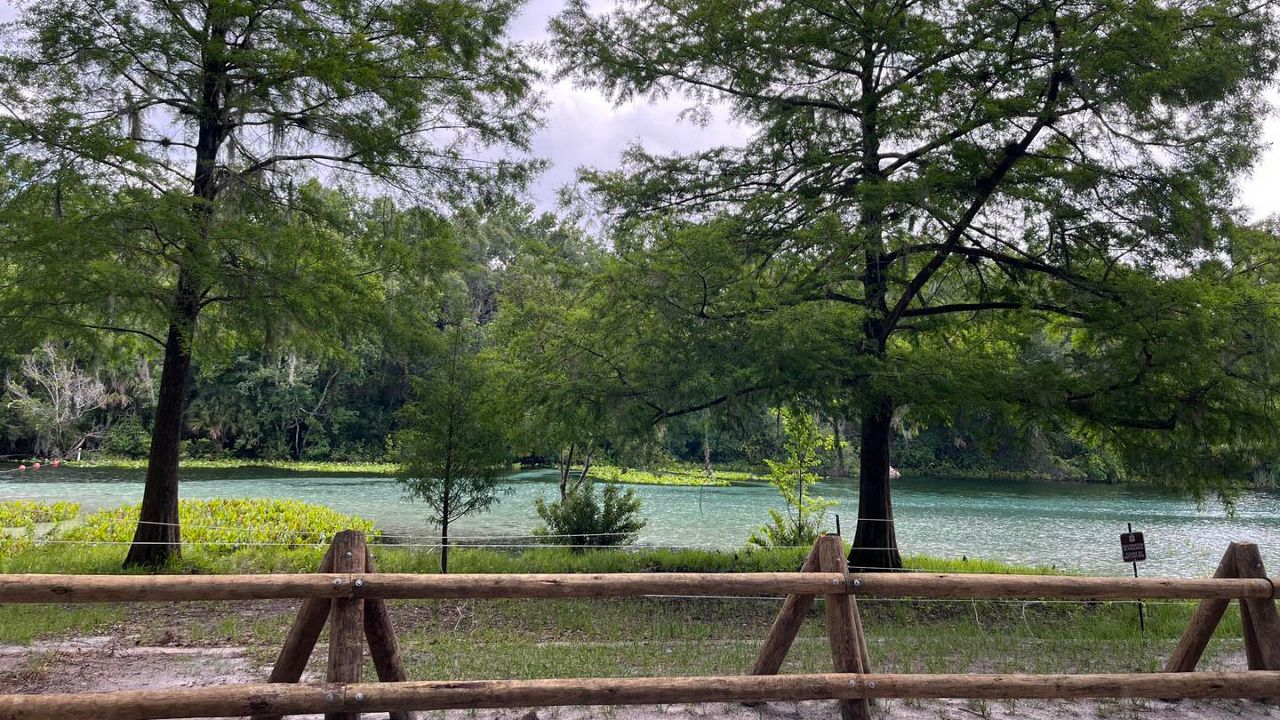OCALA, Fla. — The Alexander Springs swimming area in the Ocala National Forest is temporarily closed after an “aggressive alligator” attacked a man Monday afternoon, U.S. Forest Service officials said.
What You Need To Know
- According to the U.S. Forest Service, a man was attacked by an alligator Monday while snorkeling in the Alexander Springs swimming area of the Ocala National Forest
- The swimming area was closed to protect the public while officials investigate the incident
- Experts say July is alligator nesting season in Florida, and mothers are very alert and protective of their eggs
- The Florida Fish and Wildlife Conservation Commission was brought to the site to capture the 7 1/2 foot alligator believed to be involved in the attack
According to the release, a man was snorkeling within the designated swim area where he said an adult alligator bit him.
Officials said the man suffered puncture wounds and lacerations, but drove himself to the hospital for treatment.
USFS was quickly notified of the incident and cleared the remaining guests in the water and closed down the swimming area for public safety.
The Florida Fish and Wildlife Conservation Commission was called in to the remove the 7 1/2 foot alligator believed to be involved in the incident.
FWC officials managed to capture the gator shortly after being notified and is investigating the incident.
The USFS will reopen the Alexander Springs swim area once FWC completes their investigation of the area and recommends next steps for public safety.
According to wildlife officials, July is alligator nesting season in Florida and mothers are very alert and protective of their eggs and young. All reptiles are more active and need to eat more during the hot season.
USFS officials urge those swimming in springs to follow all posted and prescribed safety guidance. Officials say alligators are masters of camouflage and blend seamlessly into their natural environment. They say alligators are not easily detected underwater, no matter how clear the water may appear, and are very territorial.
FWC offers tips to safely co-exist with alligators:
- Keep a safe distance if you see an alligator and never feed one. When fed, alligators can lose their natural wariness and instead learn to associate people with the availability of food.
- Swim only in designated swimming areas during daylight hours. Alligators are most active between dusk and dawn.
- Keep pets on a leash and away from the water’s edge and never let them swim in fresh or brackish water. Pets often resemble alligators’ natural prey.
- Call the FWC’s Nuisance Alligator Hotline at 866-FWC-GATOR (866-392-4286) if you believe an alligator poses a threat to people, pets or property and the FWC will dispatch a contracted nuisance alligator trapper to resolve the situation. The FWC places the highest priority on public safety and administers a Statewide Nuisance Alligator Program (SNAP) to proactively address alligator threats in developed areas, while conserving alligators in areas where they naturally occur.
- Find more resources about living with alligators and Spanish translation information tools at MyFWC.com/Alligator.




